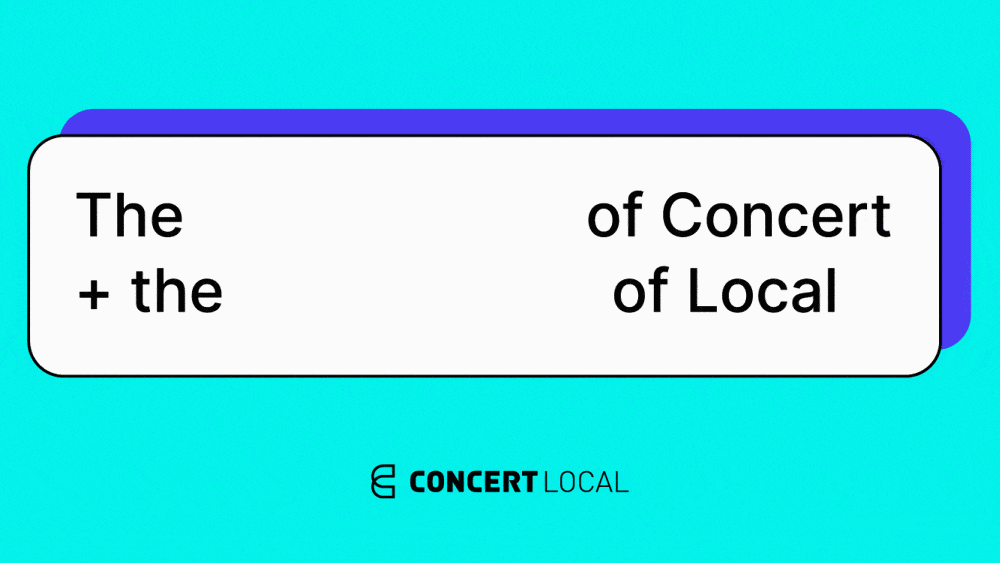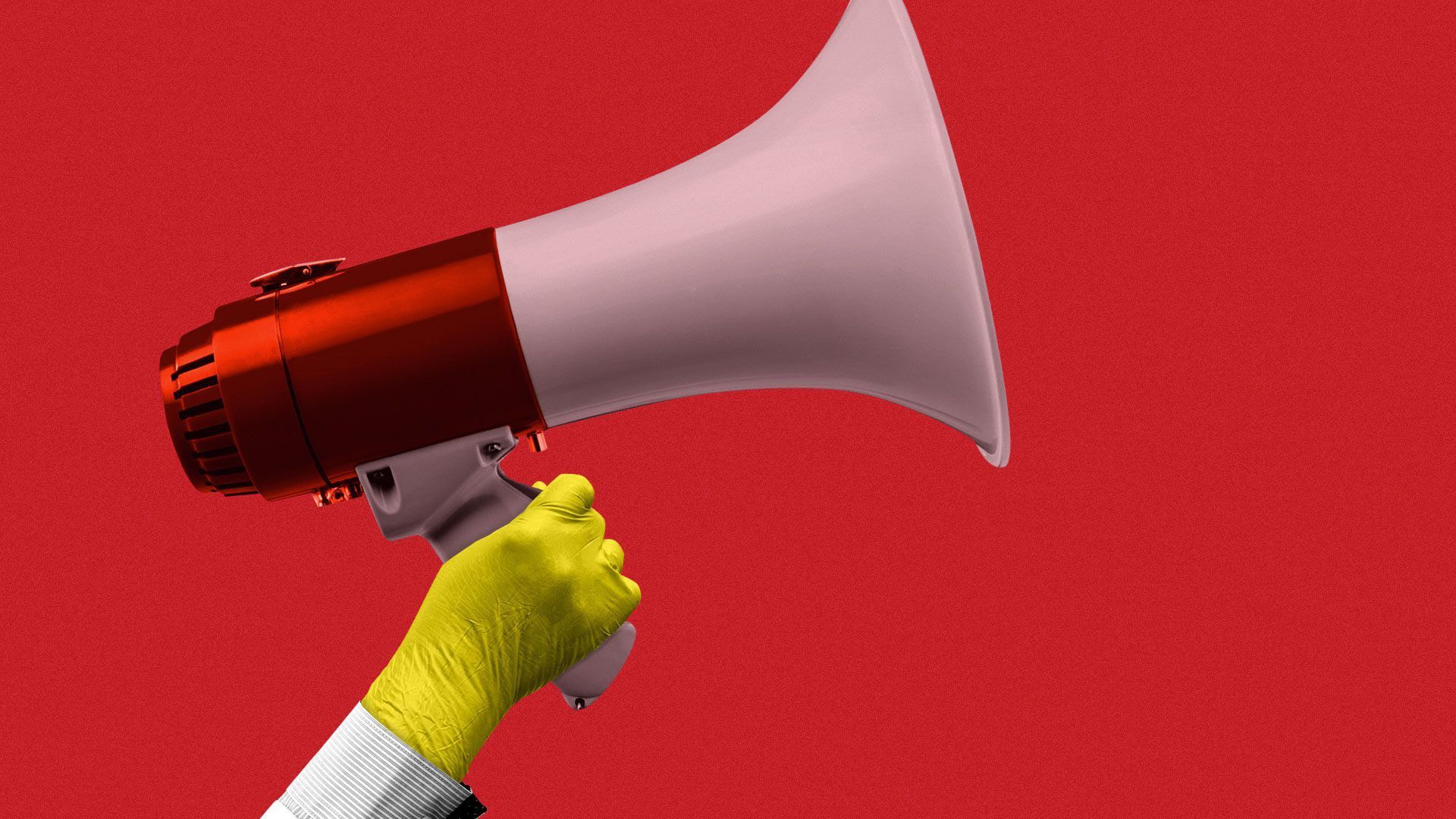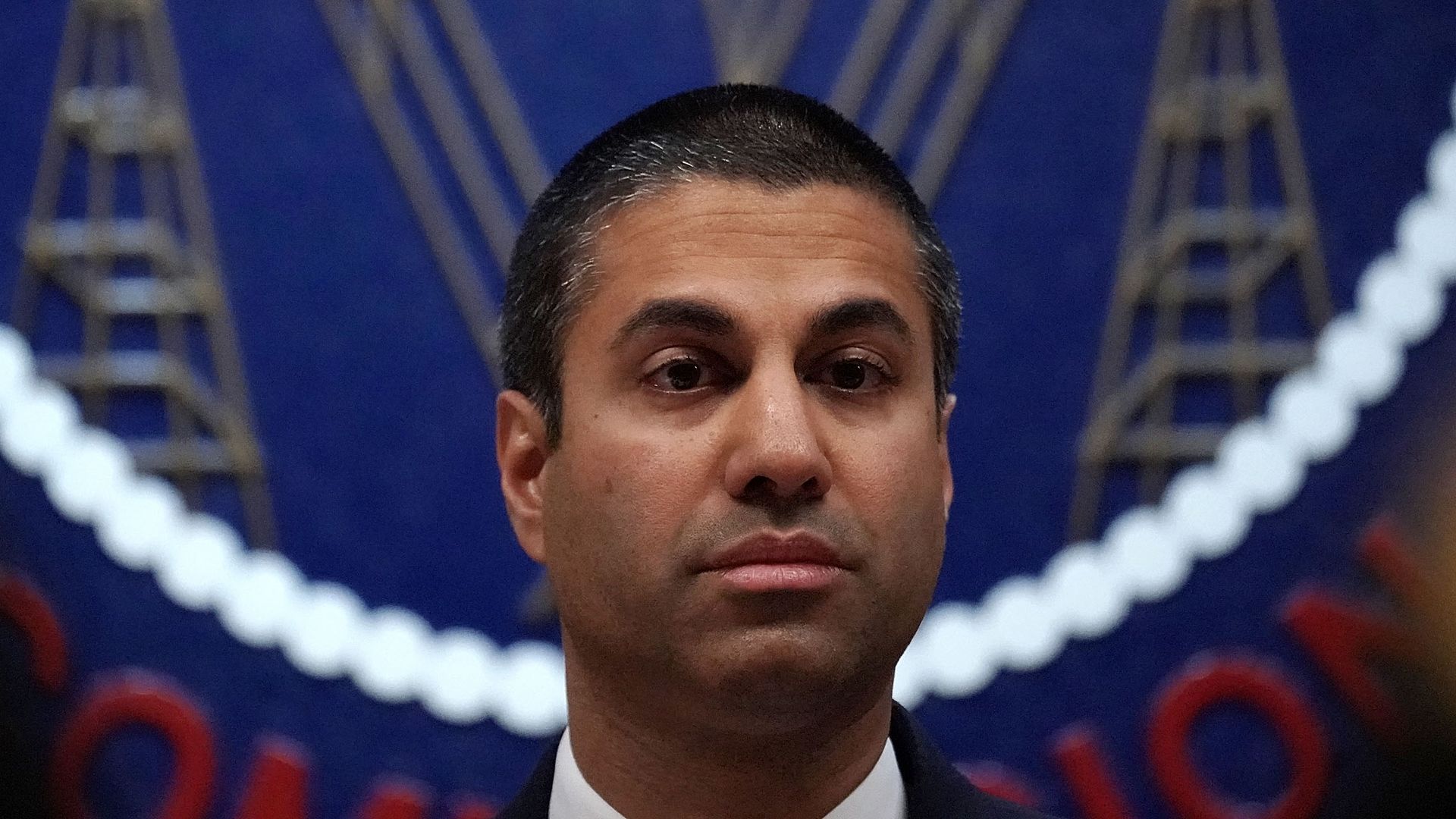| | | | | | | Presented By Concert Local | | | | Axios Media Trends | | By Sara Fischer ·Dec 01, 2020 | | Today's Media Trends is 1,741 words, a 7-minute read. Sign up here. Situational awareness: Reddit says it averaged 52 million daily active users in October, marking the first time it disclosed a metric used by other social media companies to measure their audiences, The Wall Street Journal reports. | | | | | | 1 big thing: Local newsletter boom |  | | | Illustration: Annelise Capossela/Axios | | | | Patch, the hyperlocal (and profitable) local digital news company, has built a new software platform called "Patch Labs" that lets local news reporters publish their own newsletters and websites, sources tell Axios. - The software is currently being used by several local journalists cover small communities independently, as well as a few local newsrooms, like the Michigan Sun Times, that have migrated their businesses onto the platform to reduce costs.
- One independent journalist in Warren County, Ohio, covers five different local communities using the software.
Why it matters: It follows a growing trend of journalists going solo via newsletters at the national level. - "I'm able to pay my bills," says Tran Longmoore, founder of The Saline Post in Michigan, who's been using the platform since July. "I'm selling a fair number of ads considering the state of the economy right now."
How it works: The software allows reporters to sell ads and subscriptions directly via the platform, and keep most of the revenue. - When reporters sell sponsorships, memberships or custom community calendars, sources say Patch takes a 3% - 10% cut, which is in-line or a little higher than what companies like Substack and Patreon take.
- Longmoore says he was able to import his subscription list onto the platform, and has seen it grow significantly since joining. The Patch digital infrastructure makes his website more reader and subscriber friendly.
- Reporters can sign up to use the tech for free. Patch approves the journalists and newsrooms that sign-up, and journalists must agree to a journalistic code of ethics to remain on the platform.
- Journalists have separate URLs and branding that are unaffiliated with Patch. Journalists in the future will have an opportunity to cross-post articles to Patch.com's local news network.
The big picture: The new product isn't meant to be a cash cow for Patch in the short-term, but long-term, it could help the company onboard many more local news sites and reporters to its platform. - Patch currently has 180 employees and will end this year as its 5th consecutive year being profitable, sources say. Several full-time engineers are working on the project internally.
The big picture: More news companies are investing in newsletter businesses at the local level to help communities with declining newspapers. - 6AM City, a local newsletter company, will close a funding round prior to the end of the year, executives tell Axios.
- Axios plans to launch local newsletters in several markets next year, starting with Minneapolis; Denver; Tampa, Fla.; and Des Moines, Iowa.
- Substack has several local journalists and outlets using its platform, including the Charlotte Ledger, and The Mill, which covers the greater Manchester, UK area.
|     | | | | | | 2. Scoop: Politico stars plot new Playbook | | Three of Politico's biggest reporting stars plan to launch a competitor to the company's Politico Playbook franchise, sources tell me. Why it matters: Jake Sherman, Anna Palmer and John Bresnahan will launch a daily newsletter in 2021 as a stand-alone company, the sources say. In effect, they will be competing against the Playbook franchise they helped create and grow. - The newsletter will include a heavy focus on Capitol Hill reporting, given the expertise of the trio, but it's not designed to be a carbon copy of Politico's flagship newsletter Playbook.
- The new venture will include other offerings aside from the newsletter.
- Sherman and Palmer have been soliciting emails via social media to get set up quickly after they depart.
Between the lines: Industry sources tell me they will be able to attract advertisers focused on the DC market, especially if they quickly replicate their elite audience. It is unclear if the product will be paid. - Politico editor Carrie Budoff Brown announced yesterday that Politico reporters Heather Caygle and Burgess Everett would become Politico's new Congressional bureau chiefs.
- Politico executives have not yet announced Playbook replacements.
What they're saying: "We're still finalizing our next steps -- 2021 is a long way away. We'll have more to say on our plans after the new year. Anna and I have absolutely loved our careers at POLITICO," Sherman tells Axios. - Politico spokesperson Brad Dayspring tells Axios: "We have enormous ambition for the Playbook franchise headed into 2021 and beyond, as well as for Huddle, our Capitol Hill focused newsletter. Look for some exciting news on both fronts this month."
The bottom line: They're the latest big media stars to leave their outlets in pursuit of independent projects. |     | | | | | | 3. 🏄 Chernin invests $30M in subscription media company Surfline |  | | | | TCG, a venture affiliate of The Chernin Group that invests in media, entertainment, and tech businesses, is investing $30 million in Surfline, a media company that focuses on surfing coverage, as well as live wave and weather forecasts for surfers, executives tell Axios. The big picture: For Chernin, the investment follows a similar pattern of investing in niche content businesses that don't rely on advertising. - TCG invested $50 million in the hunting media brand MeatEater last year.
- It took a majority stake last year in Food52, a home and food site, for $83 million.
Surfline is a 35-year old privately-held company, headquartered in Huntington Beach, California. - Its inception story is unique: The company started as a 1-900 phone line, where people could call and get the daily surf forecast for $1.99.
- Today, it's one of the most trusted sources of information and editorial content for surfers in America.
While the business is mostly subscription-based ($9.99 monthly), it has a small advertising business and a budding affiliate businesses. (The phone line business has been gone for more than 10 years.) - The company says it has an audience over 3 million, but it wouldn't disclose how many people pay for its subscription.
The money will be used in part to improve Surfline's technology arm, which powers the proprietary swell and weather modeling tool for surfers. - With the funding, the company is also appointing former Disney and Amazon executive Kyle Laughlin as CEO.
- Laughlin tells Axios that the funding will also be used to hire more employees around the country, particularly in product and engineering.
Go deeper. |     | | | | | | A message from Concert Local | | Local news sites can be powerful marketing channels | | |  | | | | Key finding: 38% of local news site visitors don't visit national news sites. Research from Vox Media and Nielsen finds that advertising on local news sites can help brands grow incremental audiences while supporting vital local journalism. Read the full study. | | | | | | 4. Netflix's staying power |  Reproduced from ANTENNA; Chart: Axios Visuals Netflix has managed to keep its dominant position as one of the least-canceled subscription services in America, according to data from ANTENNA, which tracks purchase behavior and key metrics across subscription media services. - The one exception was in September, when it faced brief backlash around a French film called "Cuties."
Driving the news: Data shows that other streamers, like Disney+ and HBO Max, are able to drive sign-ups and buzz with new hits, but the question is whether they can retain users long-term. - Nielsen debuted its weekly top 10 streaming report for the week of Oct 26, 2020 to Nov 1, 2020 on Monday. 9 of the top 10 shows belonged to Netflix. Disney+'s "The Mandalorian," took the number 3 spot.
- Data from Parrot Analytics, which measures streaming demand, found that demand from HBO's new hit show "The Undoing" and Amazon Prime Video's "The Boys" is surging.
The big picture: Netflix's goal isn't to compete with other streaming services as much as it is to compete with traditional TV. - The company has long invested in growing its content library and machine learning capabilities so that it can push almost any type of content to any type of user.
- As the only standalone streaming entertainment company, its' strategy differs from most of its competitors that largely use streaming to drive other products, like cell phones or cable subscriptions.
|     | | | | | | 5. The words that persuade people on the pandemic |  | | | Illustration: Eniola Odetunde/Axios | | | | Pollster Frank Luntz has identified effective vocabulary for getting the public to take COVID seriously. - Why it matters: Large swaths of the population are turned off by the language being used by the government, business and the media, Luntz tells Axios.
This is particularly true for Republicans, according to a study that Luntz conducted in conjunction with the de Beaumont Foundation. - Polling shows Republicans tend to take the coronavirus less seriously, in part because the vocabulary used to describe safety measures feels invasive of their constitutional rights.
Luntz's recommendations: - Americans consider a "pandemic" more "significant, serious, and scary" than "COVID-19" or "coronavirus."
- Saying "eliminating" or "eradicating" the virus is more effective than using "defeating" or "crushing" the virus, because war-like language can politicize the issue.
- Emphasis on the speed of vaccine development turns the public off, Luntz said. People are looking for something safe, assured and effective. The administration's framing around "Operation Warp Speed," and getting a vaccine out quickly, undermines public trust that the vaccine is safe.
- The word "protocols" elicits a more positive reaction than "mandates," "directives," "controls," or "orders."
Yes, but: These suggestions may fall on deaf ears, as not all officials, newsrooms and business leaders are incentivized to think about public safety over personal objectives. |     | | | | | | 6. Facebook, Google push deals despite antitrust scrutiny |  | | | Illustration: Eniola Odetunde/Axios | | | | Facebook announced Monday that it has purchased a customer service chatbot startup called Kustomer. The app reportedly cost Facebook $1 billion, the same amount it paid for Instagram in 2012. Why it matters: The deal is the latest sign that the world's biggest tech companies, despite facing global antitrust scrutiny, will not stop buying up other companies. The antitrust pressure is increasing as both companies continue to grow during the pandemic. Be smart: For both Google and Facebook, recent acquisitions aim to bolster new businesses, like e-commerce, connected fitness and gaming. - It's harder for regulators to prove that companies like Facebook and Google hold monopolies when they are new entrants in a market, so the acquisitions in newer lines of business may not set off alarms.
Yes, but: Companies this size gain market power quickly. In its announcement Monday, Facebook said that more than 175 million people contact businesses via WhatsApp. ⚖️ New this AM: More than 20,000 users submitted cases to Facebook's independent oversight board. The board has chosen to review 6 of those cases to start. Read more. |     | | | | | | 7. Local news says goodbye to Pai |  | | | Photo by Alex Wong/Getty Images | | | | Local news groups will miss Ajit Pai when he leaves his post as chairman of the Federal Communications Commission on Jan. 20. Why it matters: Pai was considered by several trade groups as a loyal supporter of local news, despite the Trump administration's often hostile view towards the press. What they're saying: "He was willing to look at the media market as it actually exists today and make clear-eyed decisions about how to foster a more vibrant system going forward," News Media Alliance president David Chavern told Axios. - "Chairman Pai has been a champion of free and local broadcasting since he joined the FCC," the National Association of Broadcasters said in a statement.
What's next: Republicans are expected to lose their commissioner majority at the FCC under the Biden administration. Go deeper. |     | | | | | | A message from Concert Local | | Unlock powerful marketing on a local level | | |  | | | | Research from Vox Media and Nielsen shows that advertising locally can help national brands increase their audience reach, consumer connection, and brand equity. The solution: Concert Local enables national advertisers to support trusted local publishers while driving real brand outcomes. Learn more. | | | | | | Axios thanks our partners for supporting our newsletters.
Sponsorship has no influence on editorial content. Axios, 3100 Clarendon Blvd, Suite 1300, Arlington VA 22201 | | | You received this email because you signed up for newsletters from Axios.
Change your preferences or unsubscribe here. | | | Was this email forwarded to you?
Sign up now to get Axios in your inbox. | | | | Follow Axios on social media:    | | | | | |









No comments:
Post a Comment